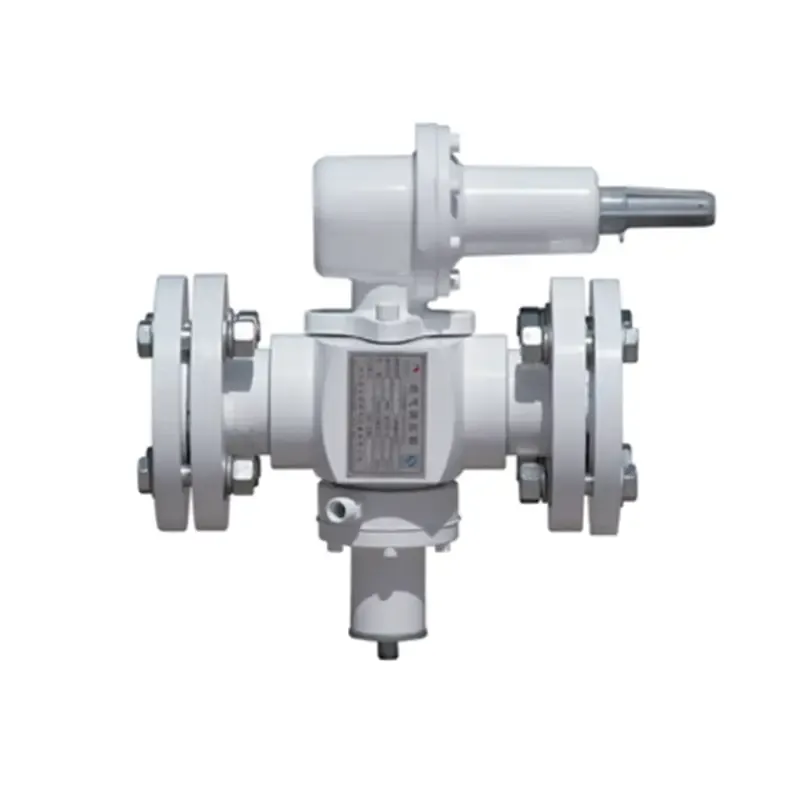
Nov . 11, 2024 20:48
Back to list
صمام كهربائي
Understanding Electrical Valves A Comprehensive Overview
Electrical valves, also known as solenoid valves, play a crucial role in various industrial and residential applications. These devices control the flow of liquids and gases by using an electromagnet to actuate the valve mechanism. As automation continues to enhance efficiency in multiple sectors, understanding the function and application of electrical valves becomes increasingly important.
What is an Electrical Valve?
At its core, an electrical valve comprises several key components a solenoid (an electromagnet), a valve body, and a spring mechanism. When an electrical current passes through the solenoid, it generates a magnetic field that moves a plunger, opening or closing the valve. This action can control the flow of fluids, making electrical valves essential for systems that require precise flow regulation.
Types of Electrical Valves
1. Normally Closed (NC) Valves These are closed when not energized. The valve opens when an electrical current is applied, allowing fluid to flow. They are commonly used in applications where a default closed position is necessary to prevent leaks or unintended flow.
2. Normally Open (NO) Valves Conversely, normally open valves allow flow when not energized. They close when power is supplied. This type is useful in applications where fluid flow is required by default, and you want to shut off the flow when needed.
3. Two-Way and Three-Way Valves Two-way valves control flow in a single direction, while three-way valves can redirect flow between two outlets. Three-way valves are often used in mixing applications and for diverting flows in HVAC systems.
4. Pilot-Operated Valves These valves use a smaller control valve to regulate the larger valve’s operation, improving efficiency and response time. They are typically used in higher-pressure applications.
Applications of Electrical Valves
Electrical valves are ubiquitous in various industries, including
- Automotive Used in fuel systems, air conditioning, and cooling systems to manage fluid movement effectively. - Water Treatment Essential for controlling the flow of chemicals and ensuring safe drinking water by regulating the process of filtration and disinfection.
.
- Manufacturing Used in assembly lines and automated systems, electrical valves help regulate the flow of materials and maintain safety during production processes.
صمام كهربائي

Advantages of Using Electrical Valves
1. Efficiency They allow for rapid actuation and close monitoring of fluid paths, leading to improved operational efficiency.
2. Automation Integration with automated controls simplifies processes, reducing the need for manual adjustments and enhancing safety.
3. Precision Electrical valves offer extraordinarily precise control over fluid flow, benefiting processes requiring exact measurements.
4. Durability With minimal mechanical wear due to fewer moving parts compared to traditional valves, they often offer longer service life.
Considerations When Choosing Electrical Valves
When selecting an electrical valve, consider the following factors
- Fluid Type The material compatibility with the fluid being controlled can significantly affect performance and longevity.
- Pressure and Temperature Ratings Ensure that the valve can handle the operational pressure and temperature of your application.
- Response Time In critical applications, the speed at which a valve opens or closes is paramount.
- Power Requirements Assess the voltage and current requirements to ensure compatibility with your existing electrical systems.
Conclusion
Electrical valves are integral components in modern fluid control systems, providing precision and efficiency across a multitude of applications. As technological advancements progress, these devices continue to evolve, paving the way for smarter and more efficient systems. Understanding how to select and implement electrical valves can lead to improved operations and significant cost savings in many industrial and residential applications. Whether in manufacturing, HVAC, or fluid management, the importance of electrical valves cannot be overstated.
Next:
Latest news
-
Safety Valve Spring-Loaded Design Overpressure ProtectionNewsJul.25,2025
-
Precision Voltage Regulator AC5 Accuracy Grade PerformanceNewsJul.25,2025
-
Natural Gas Pressure Regulating Skid Industrial Pipeline ApplicationsNewsJul.25,2025
-
Natural Gas Filter Stainless Steel Mesh Element DesignNewsJul.25,2025
-
Gas Pressure Regulator Valve Direct-Acting Spring-Loaded DesignNewsJul.25,2025
-
Decompression Equipment Multi-Stage Heat Exchange System DesignNewsJul.25,2025

